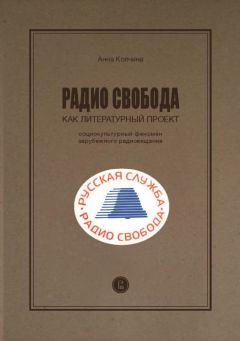Фрэнсис Фитцджеральд - Английский язык с Ф. Скоттом Фитцджеральдом. Алмаз величиной в отель «Риц» / Francis Scott Fitzgerald. The Diamond As Big As The Ritz
mariner ['mxrInq], wrath [rOT], beard [bIqd]
"These are some adventurous mariners who had the misfortune to discover El Dorado," he remarked.
Below them there had appeared a large hollow in the earth shaped like the interior of a bowl. The sides were steep and apparently of polished glass, and on its slightly concave surface stood about two dozen men clad in the half costume, half uniform, of aviators. Their upturned faces, lit with wrath, with malice, with despair, with cynical humor, were covered by long growths of beard, but with the exception of a few who had pined perceptibly away, they seemed to be a well-fed, healthy lot.
Braddock Washington drew a garden chair to the edge of the pit and sat down (придвинул к краю ямы садовый стул и сел).
"Well, how are you, boys?" he inquired genially (ну, как поживаете, парни? — спросил он дружелюбно).
A chorus of execration in which all joined except a few too dispirited to cry out (хор проклятий, к которому присоединились все, кроме немногих слишком удрученных/отчаявшихся, для того чтобы кричать), rose up into the sunny air (огласил пронизанный солнечными лучами воздух: «поднялся в солнечный воздух»; to rise up), but Braddock Washington heard it with unruffled composure (слушал с совершенно невозмутимым видом: «с ненарушенным спокойствием/самообладанием»; to ruffle — вызывать рябь /на воде/; нарушать спокойствие, волновать). When its last echo had died away he spoke again (когда затих: «умер» последний отголосок, он снова заговорил).
"Have you thought up a way out of your difficulty (вы придумали /для нас/ выход из /создавшегося/ положения: «вашего затруднения»)?"
From here and there among them a remark floated up (от нескольких из них донеслось: «всплыли» несколько замечаний).
"We decided to stay here for love (мы решили остаться здесь, нам здесь нравиться; for love — /делать что-л./ для удовольствия, не ради выгоды)!"
"Bring us up there and we'll find us a way (подымите нас наверх, мы найдем выход)!"
inquire [In'kwaIq], genially ['GJnIqlI], echo ['ekqV]
Braddock Washington drew a garden chair to the edge of the pit and sat down.
"Well, how are you, boys?" he inquired genially.
A chorus of execration in which all joined except a few too dispirited to cry out, rose up into the sunny air, but Braddock Washington heard it with unruffled composure. When its last echo had died away he spoke again.
"Have you thought up a way out of your difficulty?"
From here and there among them a remark floated up.
"We decided to stay here for love!"
"Bring us up there and we'll find us a way!"
Braddock Washington waited until they were again quiet (подождал, пока они опять успокоились). Then he said:
"I've told you the situation (я /уже/ рассказал = объяснил вам ситуацию). I don't want you here (вы мне здесь не нужны). I wish to heaven I'd never seen you (предпочел бы никогда вас не видеть; to wish — желать, хотеть; to heaven — до небес; употребляется для усиления). Your own curiosity got you here (ваше собственное любопытство завело вас сюда), and any time that you can think of a way out (и в любое время, когда вам удастся придумать выход) which protects me and my interests (который защитит меня и мои интересы = не повредит мне и моим интересам) I'll be glad to consider it (я буду рад его обсудить/обдумать). But so long as you confine your efforts to digging tunnels (но до тех пор, пока вы тратите свои силы только на рытье подземных ходов: «ограничиваете свои усилия рытьем…») — yes, I know about the new one you've started (да, я знаю о /том/ новом, который вы начали) — you won't get very far (вы далеко не продвинетесь). This isn't as hard on you as you make it out (не так уж вам тяжко /приходится/, как вы изображаете), with all your howling for the loved ones at home (с вашим воем/нытьем о близких /которых вы оставили дома/; to howl — выть; вопить; плакать, рыдать, реветь). If you were the type who worried much about the loved ones at home (если бы вы были из тех, кто сильно беспокоится о близких, которые /оставлены/ дома), you'd never have taken up aviation (вы бы никогда не стали авиаторами: «заниматься авиацией»)."
heaven ['hev(q)n], worried ['wArId], interest ['Int(q)rIst]
Braddock Washington waited until they were again quiet. Then he said:
"I've told you the situation. I don't want you here. I wish to heaven I'd never seen you. Your own curiosity got you here, and any time that you can think of a way out which protects me and my interests I'll be glad to consider it. But so long as you confine your efforts to digging tunnels — yes, I know about the new one you've started — you won't get very far. This isn't as hard on you as you make it out, with all your howling for the loved ones at home. If you were the type who worried much about the loved ones at home, you'd never have taken up aviation."
A tall man moved apart from the others (высокий человек отделился от остальных), and held up his hand to call his captor's attention to what he was about to say (и поднял руку, чтобы привлечь внимание своего тюремщика к тому, что он собирался сказать).
"Let me ask you a few questions!" he cried (позвольте задать вам несколько вопросов! — крикнул он). "You pretend to be a fair-minded man (/вот/ вы считаете себя справедливым человеком; to pretend — прикидываться, разыгрывать из себя; претендовать; притязать /на что-л./)."
"How absurd (как нелепо = какая чепуха). How could a man of my position be fair-minded toward you (как может человек в моем положении быть справедливым по отношению к вам)? You might as well speak of a Spaniard being fair-minded toward a piece of steak (c таким же успехом можно говорить о справедливости испанца к бифштексу; piece — кусок; steak — кусок мяса /для жарения/; бифштекс)."
At this harsh observation the faces of the two dozen steaks fell (при этом резком замечании лица двух дюжин бифштексов помрачнели; to fall — падать; терять живость /о выражении лица/) but the tall man continued (но высокий человек продолжал):
"All right!" he cried (ладно/хорошо, — крикнул он). "We've argued this out before (мы уже спорили об этом = на эту тему). You're not a humanitarian and you're not fair-minded (вы не гуманист/филантроп, и вы не справедливы), but you're human — at least you say you are (но вы человек, по крайней мере говорите, что человек) — and you ought to be able to put yourself in our place for long enough to think how — how — how (и вы должны быть способны поставить себя на наше место на достаточное время, чтобы задуматься, как… как…) —"
fair-minded ["fFq'maIndId], steak [steIk], humanitarian [hjH" mxnI'tFqrIqn]
A tall man moved apart from the others, and held up his hand to call his captor's attention to what he was about to say.
"Let me ask you a few questions!" he cried. "You pretend to be a fair-minded man."
"How absurd. How could a man of my position be fair-minded toward you? You might as well speak of a Spaniard being fair-minded toward a piece of steak."
At this harsh observation the faces of the two dozen steaks fell but the tall man continued:
"All right!" he cried. "We've argued this out before. You're not a humanitarian and you're not fair-minded, but you're human — at least you say you are — and you ought to be able to put yourself in our place for long enough to think how — how — how —"
"How what?" demanded Washington, coldly (как что? — холодно спросил Вашингтон).
" — how unnecessary (как бесполезно/бессмысленно; unnecessary — излишний, лишний, ненужный) —"
"Not to me (не для меня)."
"Well, — how cruel (ну — как жестоко) —"
"We've covered that (мы /уже/ достаточно обсуждали эту тему; to cover — покрывать). Cruelty doesn't exist where self-preservation is involved (жестокости не существует /там/, где речь идет о самосохранении; to involve — привлекать, вовлекать; касаться, затрагивать). You've been soldiers: you know that (вы воевали: «были военными/солдатами» и знаете это /сами/). Try another (попробуй что-нибудь другое)."
"Well, then, how stupid (ну, тогда как глупо)."
demand [dImRnd], soldier ['sqVlGq], exist [Ig'zIst]
"How what?" demanded Washington, coldly.
" — how unnecessary —"
"Not to me."
"Well, — how cruel —"
"We've covered that. Cruelty doesn't exist where self-preservation is involved. You've been soldiers: you know that. Try another."
"Well, then, how stupid."
"There," admitted Washington, "I grant you that (вот! — согласился Вашингтон, — это я готов допустить; to grant — дарить; предоставлять; допускать, предполагать). But try to think of an alternative (но попробуй придумать альтернативу). I've offered to have all or any of you painlessly executed if you wish (я предлагал всех или любого из вас безболезненно казнить = лишить жизни, если пожелаете). I've offered to have your wives, sweethearts, children, and mothers kidnapped and brought out here (похитить ваших жен, возлюбленных, детей и матерей и доставить сюда). I'll enlarge your place down there and feed and clothe you the rest of your lives (я расширю ваше помещение там внизу и буду кормить и одевать вас до конца жизни: «остаток ваших жизней»). If there was some method of producing permanent amnesia (если бы существовал какой-нибудь способ вызвать постоянную = непроходящую амнезию) I'd have all of you operated on (я приказал бы вас всех прооперировать) and released immediately, somewhere outside of my preserves (и немедленно выпустил бы где-нибудь за пределы моих владений). But that's as far as my ideas go (но больше мне ничего не приходит в голову: «мои идеи доходят /лишь/ настолько далеко»)."
"How about trusting us not to peach on you?" cried some one (как насчет того, чтобы поверить нам, что мы на вас не донесем? — выкрикнул кто-то).
amnesia [xm'nJzIq, — Zjq], sweetheart ['swJthRt], lives /сущ. во мн. ч./ [laIvz]
"There," admitted Washington, "I grant you that. But try to think of an alternative. I've offered to have all or any of you painlessly executed if you wish. I've offered to have your wives, sweethearts, children, and mothers kidnapped and brought out here. I'll enlarge your place down there and feed and clothe you the rest of your lives. If there was some method of producing permanent amnesia I'd have all of you operated on and released immediately, somewhere outside of my preserves. But that's as far as my ideas go."
"How about trusting us not to peach on you?" cried some one.
"You don't proffer that suggestion seriously (вы /ведь/ не всерьез это предлагаете: «делаете такое предложение»; to proffer — предлагать)," said Washington, with an expression of scorn (c презрением: «выражением презрения /на лице/»). "I did take out one man to teach my daughter Italian (я вынул = взял наверх одного человека учить мою дочь итальянскому). Last week he got away (на прошлой неделе он сбежал)."
A wild yell of jubilation went up suddenly from two dozen throats (дикий вопль восторга вырвался: «поднялся» из двух дюжин глоток) and a pandemonium of joy ensued (и последовало = началось адское ликование; pandemonium — обитель демонов, ад, преисподняя; столпотворение, хаос). The prisoners clog-danced (пленники отбивали чечетку; clog-dance — танец, который исполняется в деревянных башмаках, отбивая ими ритм) and cheered (радостно кричали) and yodled (пели на тирольский манер; yodle — йодль /напев тирольских горцев/) and wrestled with one another in a sudden uprush of animal spirits (и боролись друг с другом во внезапном приливе = припадке животной радости). They even ran up the glass sides of the bowl as far as they could (они даже взбегали, насколько могли, вверх по стенкам "чаши"), and slid back to the bottom upon the natural cushions of their bodies (и съезжали вниз на природных подушках = мягкостях своих тел). The tall man started a song in which they all joined (высокий человек начал = затянул песню, к которой присоединились они все) —



